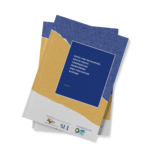Dialogues on International Development Cooperation
Dialogues on International Cooperation for Development
In light of the current world context, a consequence of Covid-19, the III Dialogues on International Cooperation for Development: Partnerships for Transformation will be postponed. New dates will be released in due time.
The Dialogues on International Cooperation for Development is an event organized by the BPC team, in collaboration with several partners, national and international. The “Dialogues” have two main goals:
- To foster policy dialogues on issues related to South-South and Triangular Co-operation among key stakeholders in government, international organizations, CSOs, think tanks and academia;
- To contribute to enhancing South-South and Triangular Co-operation to make them fit for implementing the 2030 Agenda.
The Third Edition, Partnerships for Transformation, will cover the following agenda:
- Dialogue 1 – Transformative practices: Aligning development cooperation to international goals
- Dialogue 2 – Triangular co-operation: How to assess partnerships?
- Dialogue 3 – Building better partnerships in the region: Kampala principles in action
Previous Editions
I Dialogues: 2017 Edition
In January 2017, the BRICS Policy Center hosted the first Dialogues on International Development Co-operation, in collaboration with the Brazilian Cooperation Agency. The event was supported by Articulação Sul and sponsored by the Seoul Policy Center, DFID, FAPERJ and CNPq. In 2017, the “Dialogues on South-South Cooperation” focused on Monitoring and Evaluation and brought together South-South Co-operation (SSC) actors from twelve countries, as well as a significant number of Brazilian implementing agencies and international organizations. The event contributed to current national and international efforts to respond to the call of United Nations Member States in the Nairobi Outcome Document of 2009, as it recognizes that “the impact of South-South cooperation should be assessed with a view to improving, as appropriate, its quality in a results-oriented manner” (GA Resolution 64/222). Furthermore, the Dialogues on South-South Cooperation established a platform for multi-stakeholder conversations and learning on issues related to the implementation, results and evaluation of South-South and Triangular Co-operation. As a result of the “Dialogues” the BRICS Policy Center and Articulação Sul prepared the report “Paths for Developing South-South Cooperation M&E Systems” published by the Brazilian Cooperation Agency.
- Dialogue 1: South-South Cooperation: Quantification
- Dialogue 2: What to evaluate? South-South Cooperation Monitoring & Evaluation
- Dialogue 3 – How to Evaluate Development Cooperation (Experts’ dialogue)
- Dialogue 4: How to evaluate triangular cooperation?
II Dialogues: 2018 Edition
In collaboration with the Brazilian Cooperation Agency, the Network of Southern Think Tanks (NEST) and other partners, the BRICS Policy Center has organized the Dialogues on International Development Cooperation – 2018. This year, the event intended to feed into the BAPA+40 process focusing on international development co-operation within the broader context of SDG17 (Partnerships for the goals). International development co-operation is at the forefront of the intensive mobilization and implementation efforts required by the 2030 Agenda. This year’s edition examines some of the types and modalities of international development co-operation and their contributions to the 2030 agenda. The event has been organized around the following agenda:
- Dialogue 1: Trilateral Cooperation, the 2030 Agenda for Sustainable Development and the Paris Agreement.
- Dialogue 2: Specialised North-South Policy Dialogue: Private sector engagement and the 2030 Agenda for Sustainable Development.
- Dialogue 3: Preparing for BAPA+40: South-South Cooperation contributions for leaving no one behind (LNOB).
Publications
Paths for developing South-South Cooperation monitoring and evaluation systems
Monitoring and evaluation practices are in constant transformation and respond to different principles and interests. Evaluating means assigning value. It implies measuring, describing and interpreting. In relation to development cooperation,...
Knowledge Base – 2018
Dialogue 1: Trilateral Cooperation, the 2030 Agenda for Sustainable Development and the Paris Agreement
ABC- GIZ – Brazilian-German Trilateral Cooperation Operational Manual
ABC – Diretrizes Gerais para a Concepção, Coordenação e Supervisão da Cooperação Técnica Trilateral
PIFCCS – Management Guidelines for Implementing Triangular Cooperation
OECD – Toolkit for identifying, monitoring and evaluanting the value added of triangular cooperation
OECD – Triangular Cooperation – What’s the Literature Telling Us
SEGIB – Manual Operativo de los Programas, Iniciativas y Proyectos de la Cooperación Iberoamericana
UNICEF -Guidelines for Trilateral South-South Cooperation Initiatives (2017)
UNDP – Brazilian Triangular Cooperation in Social Protection: contributions to the 2030 Agenda
UNESCO – South-South and Triangular Cooperation in Action
UNDP – Monitoring and evaluation mechanisms for South-South and Triangular Development Cooperation
UNSSC – Good Practices in SSTC for Sustainable Development – Vol. 2 (2018)
Dialogue 2: Specialised North-South Policy Dialogue: Private sector engagement and the 2030 Agenda for Sustainable Development.
Clist & Verschoor_The Conceptual Basis of Payment by Results
Development impact bonds: learning from the Asháninka cocoa and coffee case in Peru
DFID – Evaluating Development Impact Bonds Final Report
Impact bonds in the Latin-American context: policy transfer analysis for Mexico, Chile and Colombia
Impact Bonds in Developing Countries: Early Learnings from the field
OCDE – Private Philantropy For Development
OECD – Blended-Finance-Principles
Dialogue 3: Preparing for BAPA+40: South-South Cooperation contributions for leaving no one behind
CDB Background Paper – Development cooperation to ensure that none be left behind
Leave no one behind: How the development community is realising the pledge
OCDE – Delivering Results to Leave No One Behind
ODI – What do analyses of Voluntary National Reviews for SDGs tell us about ‘leaving no one behind’?
UNOSSC – Voices of Practitioners of South-South and Triangular Cooperation
and the Road towards the BAPA+40



